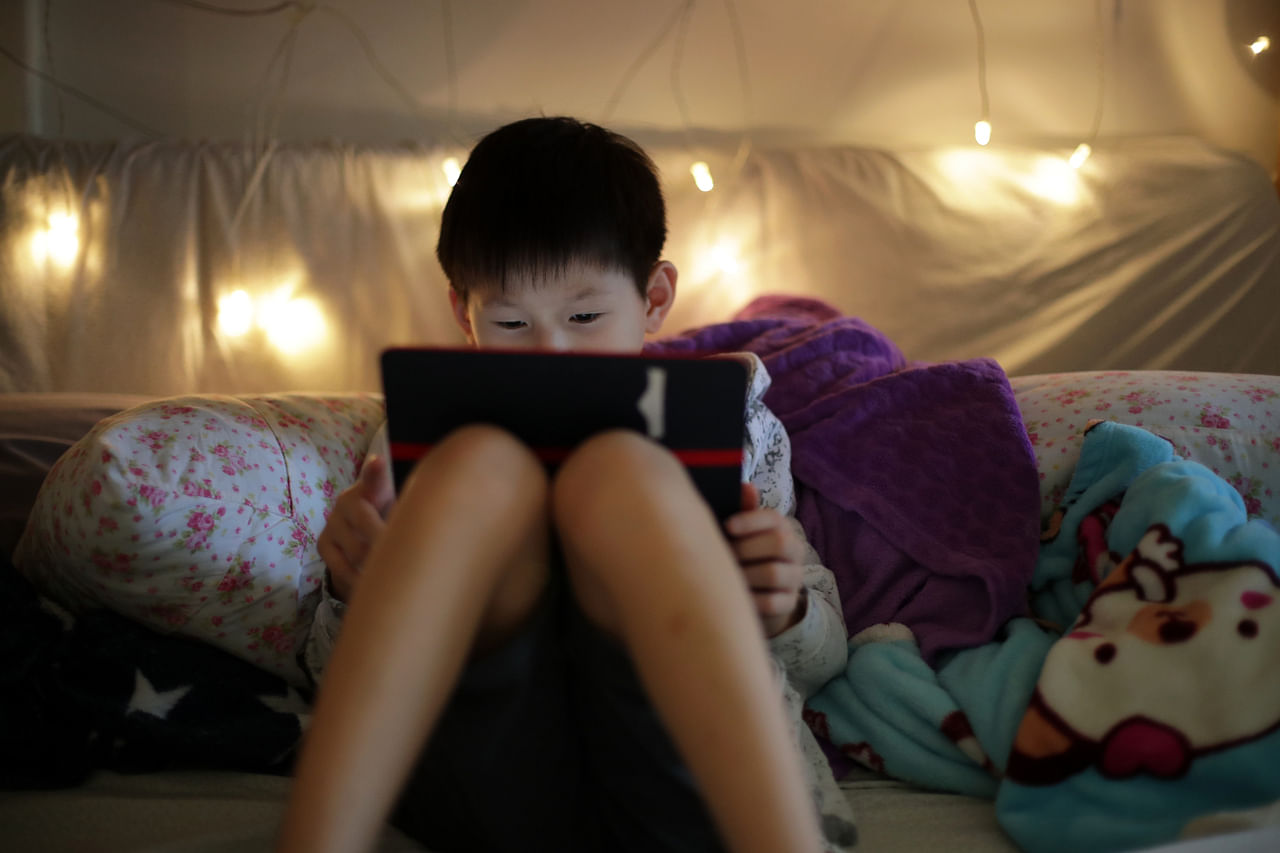Young children in Covid-19 isolation: Tips on how to care for them
Sign up now: Get ST's newsletters delivered to your inbox

It is important to have open and honest communication with the child on the reasons for isolation.
ST PHOTO: GIN TAY
Follow topic:
SINGAPORE - With children as young as three now eligible for Covid-19 home recovery, parents may have questions on how to cope and care for them.
The Straits Times speaks with experts to find ways to navigate the 10 days of isolation.
Q: How should parents care for and explain to a child why he needs to be isolated from his family, including his siblings?
A: Ten days of isolation can be daunting for everyone at home.
It is important to have open and honest communication with the child on the reasons for the isolation.
Children need to be assessed regularly. This could involve temperature taking and oxygen saturation monitoring.
By mixing the medical routine with play or distraction techniques, it could help parents deal with fretful children, said Dr Rie Aoyama, paediatric infectious diseases associate consultant at the National University Hospital's Khoo Teck Puat - National University Children's Medical Institute.
During isolation, the children can be engaged with a few non-screen-related interactive activities, such as lego projects, jigsaw puzzles, or other arts and crafts to help pass the time.
She added that it is important that the other children in the family understand the reasons why their sibling is isolated.
Parents can also get organised by having a summary or a list of the child's medical history at hand, in the event that this is needed during the telemedicine consult, Dr Aoyama said.
Associate Professor Sashikumar Ganapathy said that the caregiver (usually a parent) who is with the child may also use video and phone calls to interact and engage with the rest of the family.
A simple countdown chart may help too.
"Family members can brainstorm together on activities to cheer the child up without physical contact," added Prof Sashikumar, who is the head and senior consultant of the department of emergency medicine at KK Women's and Children's Hospital.
Q: What should be monitored?
A: The child's temperature, pulse rate and oxygen saturation, in addition to any symptoms that may require urgent medical attention.
These symptoms include ongoing high fever accompanied by breathlessness, vomiting, abdominal pain, drowsiness, sudden weakness or lethargy.
For very young children, where the pulse oximeter may not fit on their tiny fingers, the caregiver can assess the child by looking at his general well-being.
It is also important to keep the child comfortable, calm and still during the oxygen level measurement to have an accurate reading.
To alleviate anxiety or fear, the children could touch and explore the saturation probe, or watch how it is used on their parents first.
The child can be kept calm during the oxygen level reading by allowing him to watch a video, sing a song or read a book.
Q: Although rare, a child can be stricken with multi-systemic inflammatory syndrome in children (MIS-C) from a Covid-19 infection. Should parents continue to monitor the child for this and other conditions after the isolation period and for how long?
A: MIS-C symptoms typically occur between two and eight weeks after a Covid-19 infection.
It is a condition where the child's immune system overreacts after a Covid-19 infection.
This is a rare syndrome but the child may require urgent care due to the involvement of various vital organs such as the heart, lungs, kidneys, brain, skin and eyes.
Associate Professor Thaschawee Arkachaisri, the head and senior consultant at the rheumatology and immunology service at KK Women's and Children's Hospital, said parents should not be overly concerned.
The syndrome is treatable if it is detected early, and most patients can make a full recovery and lead normal lives, he added.
Some symptoms to watch out for:
- Fever, abdominal pain, vomiting and diarrhoea are common initial complaints.
- Ongoing high fever may also be accompanied by: muscle aches/weakness, abdominal pain, nausea/ vomiting, diarrhoea, skin rash, red eyes, tongue and lips, hand/feet swelling and swollen lymph nodes, among others.
- Parents should seek the care of a paediatrician or children's emergency care immediately if the child reports any of the following signs: Difficulty in breathing, persistent pain or pressure in the chest, vomiting, abdominal pain, acting unusually sleepy or confused, feeling unusually weak or dizzy, looks pale, grey- or blue-coloured lips.

